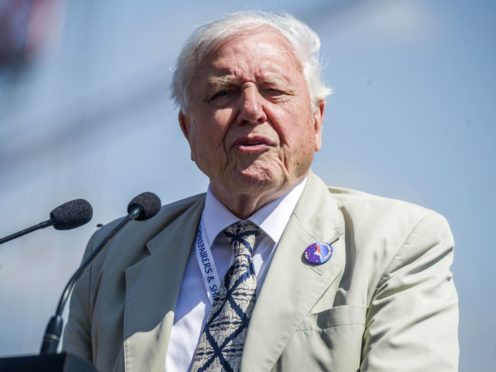Squabbling politicians could learn a lot from scientific collaboration and the “marvellous ideals” in the Antarctic Treaty, Sir David Attenborough has said.
He was delivering a speech to the Parliamentary Office of Science and Technology, a stone’s throw from the House of Commons where MPs were debating and voting to possibly change the direction of Brexit.
Describing how there were lots of nations interested in the continent of Antarctica six decades ago, including Norway, France, New Zealand, Chile and Argentina, the 92-year-old broadcaster said it was a “kind of free-for-all”.
“But as a consequence of this urge to take a scientific approach to the exploration of the continent… the nations got together… scientists got together and said we need to know about the physical characteristics of this vast land mass,” he said.
“Living down there, researching down there is hard enough… let us get together and make a treaty, in which there will be a series of idealistic commands.
“We will stop squabbling among ourselves and different nationalities, we will establish bases and will welcome anybody from any other base to our base to see what we are doing.”
Under The Antarctic Treaty, signed by 12 countries in December 1959, it was agreed that the continent should be used for peaceful purposes, military practices were prohibited and scientific collaboration was encouraged.
Sir David said the treaty had no end and would “go on for eternity”, adding: “Marvellous ideals make the pulse quicken in this day of squabbling that we have got going on in the world today.”
He said there are no similar treaties anywhere else in the world and it is nice to think the continent is “leading the way”.
Speaking to reporters, Sir David said the world has to get together to bring about change in an environmental capacity and in terms of climate, reiterating how scientific collaboration across the nations offers a good model.
“Rather a better example than many politicians,” he said. “I don’t wish to paint scientists as saints – they too have their feuds and their quarrels and their arguments.
“But what is happening in the Antarctic is a very admirable example of how intelligent people can get together and sort out problems.”
Asked if the politicians involved in Brexit could learn anything from the animal kingdom, Sir David simply said no.
“They don’t co-operate in that way, and they don’t have logical discussions, which is what one hopes politicians do,” he added.

Earlier this month at the World Economic Forum in Davos, Switzerland, Sir David urged business leaders and governments to come up with “practical solutions” to address environmental issues.
Pressed on whether more can be done or if the damage to the planet is irreparable, he said: “We have to do whatever we can to rescue what we can, we aren’t going to recover, we are going to have great difficulty, and it seems very unlikely that we may even be able to maintain the status quo.
“The temperatures are rising and we simply have to restrict it as far as we can.”
Responding to a recent tweet from US President Donald Trump stating how America could do with a little more global warming due to the cold temperatures, Sir David added that he is “sorry the president of the most powerful country in the world has not a greater grasp or a better perspective on the world”.
